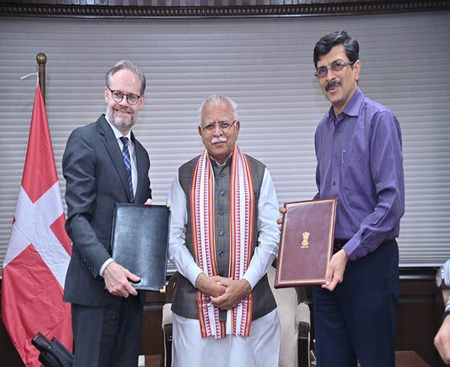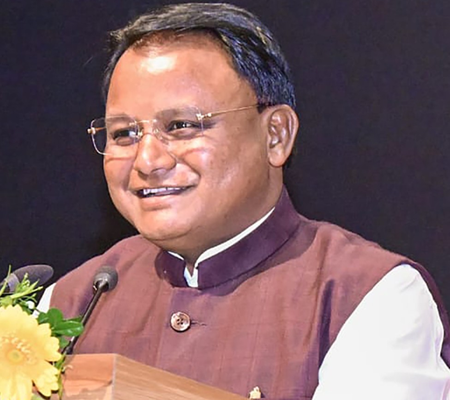
New Delhi, May 2 (IANS) India and Denmark signed a renewed Memorandum of Understanding (MoU) on Friday to reinforce their long-standing cooperation in the energy sector.
The agreement reflects the continued commitment of both countries to accelerate clean energy transitions, according to an official statement.
The MoU was signed by Power Secretary Pankaj Agarwal and Denmark’s Ambassador to India, Rasmus Abildgaard Kristensen, in the presence of Minister of Power Manohar Lal.
The renewed MoU supports India’s ambitious target of achieving net-zero emissions by 2070. It aims to foster knowledge exchange and technological collaboration between the two countries, particularly in the area of clean and sustainable energy solutions.
The agreement follows five years of successful collaboration under the original MoU, signed on June 5, 2020, and initially set to expire on June 5, 2025. The proactive renewal ensures continuity in dialogue and cooperation, allowing for a seamless extension of joint efforts in energy sector development.
The renewed agreement broadens the partnership to cover advanced areas such as power system modelling, integration of variable renewable energy, cross-border electricity trading, and development of EV charging infrastructure.
It also emphasises increased knowledge exchange through expert interactions, joint training sessions, and study tours.
In his statement at the meeting, Power Minister Manohar Lal said that the renewed energy cooperation expresses the mutual commitment of India and Denmark to foster sustainable development.
With a record annual addition of 29.52 GW, India’s total installed renewable energy capacity touched 220.10 GW as of 31st March 2025, up from 198.75 GW in the previous financial year.
Solar energy was the main driver of growth with a capacity expansion of 23.83 GW in FY 2024–25, a significant increase over the 15.03 GW added in the previous year.
The country’s total installed solar capacity now stands at 105.65 GW. This includes 81.01 GW from ground-mounted installations, 17.02 GW from rooftop solar, 2.87 GW from solar components of hybrid projects, and 4.74 GW from off-grid systems.
The growth demonstrates continued uptake of solar energy across utility-scale and distributed categories.
Wind energy also witnessed sustained progress during the year, with 4.15 GW of new capacity added, compared to 3.25 GW in FY 2023–24. The total cumulative installed wind capacity now stands at 50.04 GW, reinforcing wind energy’s role in the country’s renewable energy mix.
Bioenergy installations reached a total capacity of 11.58 GW, which includes 0.53 GW from off-grid and waste-to-energy projects.
Besides, small hydro power projects have achieved a capacity of 5.10 GW, with a further 0.44 GW under implementation.
–IANS
sps/vd




